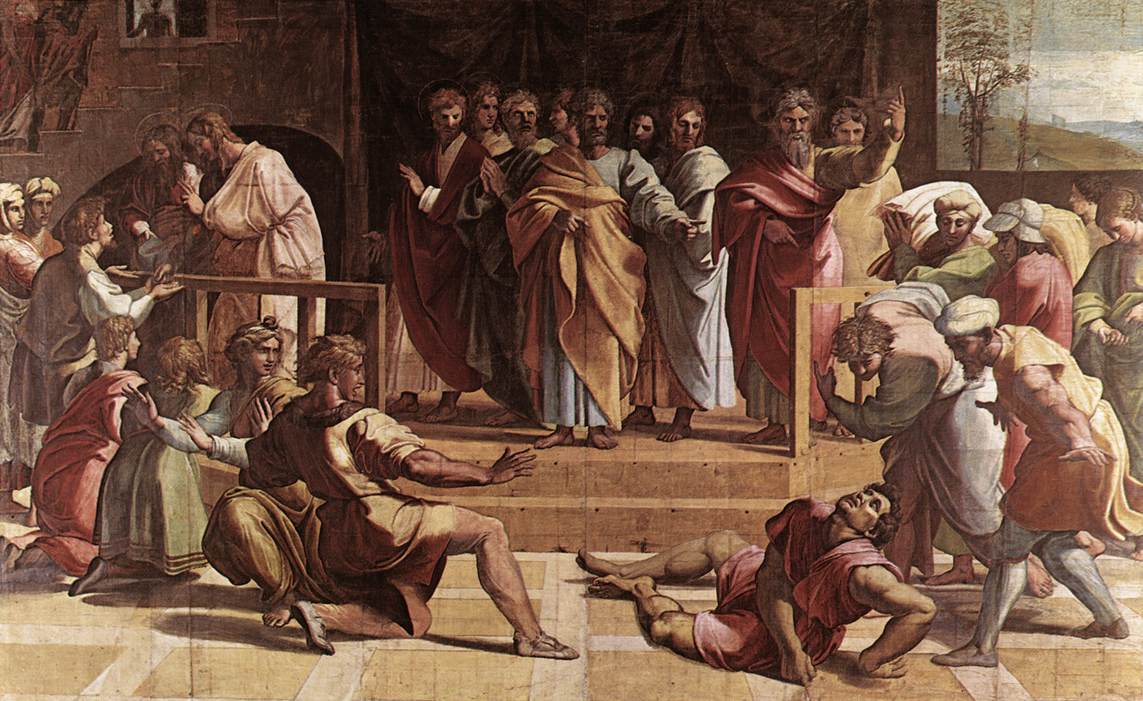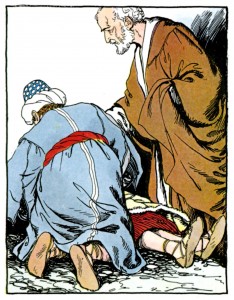Acts 5:1–11, The deaths of Ananias and Sapphira. Why did Elohim kill them? It is because they committed the unpardonable sin in that they willfully and in a premeditated plot lied to the Elohim. There is no sacrifice or forgiveness for willful sin. YHVH was showing us that even in the age of the New Covenant, the so-called “age of grace,” Elohim’s grace doesn’t cover willful sin. Let us all fear YHVH Elohim and tremble before him all the time!
Some scholars suggest that YHVH killed them because they violated the Torah laws regarding the handling of devoted things, for which there was a death penalty (Lev 27:28–29). Perhaps so. Whatever the case, it’s interesting to note that YHVH struck Ananias and Sapphira dead after the cross in, what many Christians call, the dispensation of grace era when, in their minds, sin doesn’t carry the same severe penalty us under “old covenant,” law of Moses era. What we learn from this is that YHVH still views sin as sin, and the wages of sin is still death (Rom 6:23). This has never changed before or after the cross of Yeshua. Just because one isn’t struck dead immediately upon having sinned doesn’t mean one hasn’t incurred the death penalty. That death penalty is only waived when one repents of their sin and asks for YHVH’s forgiveness through faith in Yeshua whose death paid the death penalty price for our sins.
Likely, such divine judgments still occur in our day more frequently than we realize. It may not involve the death of the individual, but rather sickness, demonic attacks, financial setbacks and other adversities that occur to us. The problem is that because of human pride and spiritual deafness and blindness, most people fail to recognize the cause of their problems. We attribute them instead to random circumstances and time and chance instead of to YHVH’s hand of judgment against us because of our sin, which we fail to recognize and repent of.
Paul addresses this issue in 1 Cor 11:27–32 with regard to those who eat of the communion elements in a careless or indifferent manner.
Therefore whoever eats this bread or drinks this cup of the Lord in an unworthy manner will be guilty of the body and blood of the Lord.
But let a man examine himself, and so let him eat of the bread and drink of the cup.
For he who eats and drinks in an unworthy manner eats and drinks judgment to himself, not discerning the Lord’s body.
For this reason many are weak and sick among you, and many sleep.
For if we would judge ourselves, we would not be judged.
But when we are judged, we are chastened by the Lord, that we may not be condemned with the world.




